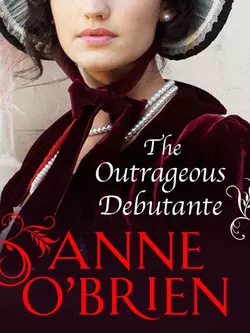The Outrageous Debutante

Anne OBrien
Тип: электронная книга
Жанр: Современная зарубежная литература
Язык: на английском языке
Стоимость: 536.55 ₽
Статус: В продаже
Издательство: HarperCollins
Дата публикации: 16.04.2024
Отзывы: Пока нет Добавить отзыв
О книге: ELIGIBLE!They have been summoned to London to enjoy the “delights” of the Season, yet neither Theodora Wooton-Devereux nor Lord Nicholas Faringdon is an enthusiastic participant in the game of love. IN LOVE! Until a chance meeting sets their lives on a different course. And soon the handsome gentleman, who has captured the heart of the beautiful—though somewhat unconventional—debutante, is the talk of the town!STAR-CROSSED…But when a shocking family scandal rears its head and forbids that they be united, it seems fate is not on their side. Now Thea must end the relationship before it is too late…by playing the truly outrageous debutante!